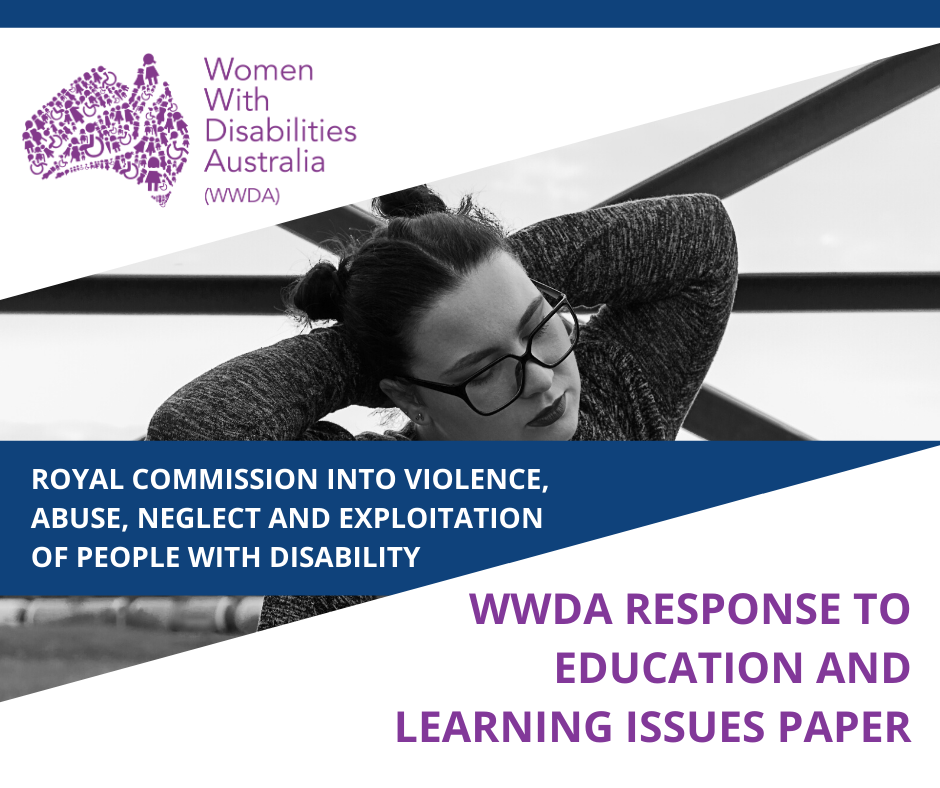In 2019 the Disability Royal Commission released an issues paper on education and learning. The issues paper asked 13 questions based on some of the key issues and barriers experienced by students with disability.
You can download the issues paper from the Disability Royal Commission website here.
WWDA have now submitted their response to the issues paper which highlights key recommendations to improve the lives and experiences of students with disability. The recommendations stem from the following key areas:
Inclusive education – right denied
People with disability rarely receive a genuine inclusive educational experience in Australia, this is discrimination and systemic neglect.
Intersectionality
It is important to identify and address the human rights violations specific to women and girls and/or that disproportionally affect women and girls with disability.
Inequality and discrimination underpin violence
It is acknowledged that beliefs, behaviours and systems that excuse, justify or condone violence and inequality must be challenged and reformed.
Restrictive practices – torture and ill-treatment
The use of restrictive practices desensitises both educational personnel and students with disability, undermining their ability to recognise these practices as unacceptable and as forms of violence, abuse, neglect and exploitation.
Exposing violence – desegregated data and intersectionality
There is little to no disaggregated data or intersectional analysis available in Australia on the educational experiences of women and girls with disability.
Building strengths through inclusive education
It is important to build the confidence, knowledge and skills of people with
disability, including women and girls:
• to increase active and meaningful participation in decision-making in all aspects of their lives; and
• in understanding the right to bodily integrity and to be free from violence, abuse, neglect and exploitation.
“As noted in the Issues Paper, the area of education and learning is both a site of violence, abuse, neglect and exploitation for students with disability and a critical facilitator of an inclusive society.
However, given the growing trend towards special education, special units in mainstream schools, and the poor outcomes reported by students with disability, the area of education and learning is not just a site of violence, abuse, neglect and exploitation, but also a form of neglect in itself.”
– WWDA Response to Education and Learning Issue Paper.
Download:
WWDA’s response to education and learning issues paper [DOC] [PDF]

